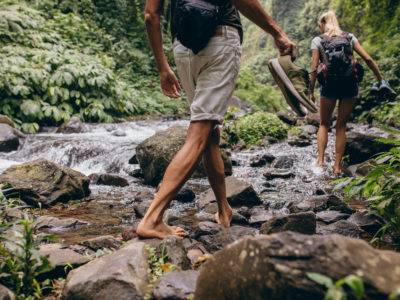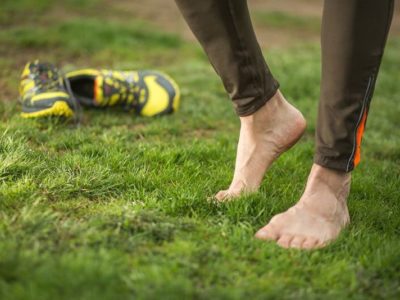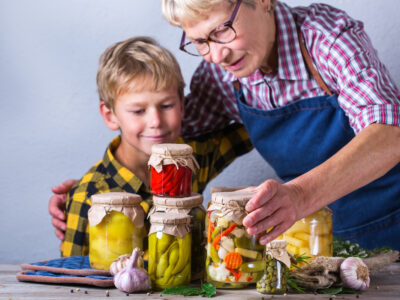Table of Contents[Hide][Show]
12 Benefits of Playing In the Dirt+−
- Boosts Your Immune System
- Increases Vitamin D Production
- Your Complete Guide to Vitamin K2 (MK-7)
- Provides Exercise
- Reduces Stress
- Improves Your Mood
- 6 Ways To Increase Serotonin Naturally
- Encourages Sensory Development
- Promotes Creativity and Imagination
- Provides Learning Opportunities
- Fosters Collaboration Skills
- Builds a Sense of Community
- Heightens Environmental Responsibility
- 5 Mindfulness Exercises for Kids and Parents to Enjoy Together
- Offers a Chance to Practice Mindfulness
When was the last time you played in the dirt? How long has it been since you dug your hands deep into the soil and felt its rich coolness?
Unless you’re an avid gardener—and shun gloves—you may have to think back to elementary school or playdates at the local playground to recall the last time you really got your hands dirty.
And you might even be wrinkling your nose in distaste. After all, most adults don’t play in the dirt.
But they should!
Believe it or not, playing in the dirt isn’t just for kids. It’s an activity for all ages, due to the physical, emotional, and mental benefits it provides for all ages.
Surprised? Don’t be.
Join us as we explore the hidden health benefits of playing in the dirt.
12 Benefits of Playing In the Dirt
From mud pies to vegetable gardens, playing in the dirt appeals to all ages. Even toddlers enjoy a trip to the playground, with the outdoor time it brings.
More importantly, both children and adults can enjoy the physical, emotional, and cognitive benefits of playing in the dirt.
Let’s take a closer look at what some of these benefits might be.
Boosts Your Immune System
There’s no getting around it. Dirt is dirty!
But that’s not a reason to stop playing in the dirt. In fact, it’s just the opposite; it’s exactly the reason why you should play in the dirt.
You probably already know that playing in the dirt brings you into contact with bacteria, viruses, and other microorganisms. But what you might not know is that as your body defends against them and creates antibodies to keep you healthy, it learns how to respond to the pathogens you’ll encounter in the future.
This exposure to microbes can also lower your risk of developing allergies, asthma, and autoimmune diseases later in life by promoting a balanced immune response.
Studies also show that exposure to the different types of beneficial bacteria found in dirt can help with the microbial diversity of your gut microbiome, which houses the vast majority of your immune system.
By enriching your gut microbiome, you can enjoy better gut health and, as a result, a stronger immune system.
Not sure it’s enough?
It’s hard, or even impossible, to know just how much of the beneficial bacteria in the soil is making its way to your microbiome. But you can promote the immune benefits of playing in the dirt with supplements, such as the Ultimate Immunity Bundle from Just Thrive, which provides potent probiotics and immune support.
- Just Thrive Probiotic contains spore-based beneficial bacteria, similar to the ones found in the soil you’re playing with. These probiotics are protected by a thick endospore shell, meaning they’re able to survive your stomach acids and are guaranteed to “arrive alive” to your gut. The four potent bacterial strains then get straight to work balancing your gut microbiome, immune response, and emotional well-being.
- Ultimate IgG supports a healthy level of antibodies (also known as immunoglobulins) for a balanced immune response when your body is exposed to pathogens such as infections, viruses, or “bad” bacteria.
Increases Vitamin D Production
Time spent outdoors in general, including playing in the dirt, often means more time in the sun.
And sunlight is necessary for your body to produce vitamin D. When your bare skin is exposed to UV radiation from the sun, it converts cholesterol into vitamin D.
This essential vitamin is crucial for healthy bones, a robust immune system, and well-balanced moods. Vitamin D also helps your body absorb calcium properly, preventing conditions such as rickets in children and osteoporosis in older adults.
Playing in the dirt, with the sun exposure it often brings, can help your body maintain the necessary vitamin D level for optimal health.
Related
Your Complete Guide to Vitamin K2 (MK-7)
Learn how vitamin K2 MK7 differs from vitamin K1 and discover its functions and benefits, signs of deficiency, and how you can incorporate it into your daily diet.
Provides Exercise
Being outdoors, including dirt play, gives kids the freedom to run around and burn off the excess energy that they’re known for.
But what about you?
For most adults, “playing in the dirt” means gardening. And far from being a gentle activity, anyone who’s maintained a garden can tell you: it’s surprisingly good exercise!
In fact, pulling weeds and planting flowers can burn between 200 and 400 calories per hour. Add in even more strenuous activities such as landscaping, hauling bags of dirt, and moving heavy rocks, and you can burn up to 600 calories per hour.
In this case, playing in the dirt can help build strength, improve your coordination, and boost your cardiovascular health.
Reduces Stress
Playing in the dirt, just like other ways of interacting with nature, has been shown to reduce stress levels. In fact, just 20 minutes in nature can reduce cortisol, the stress hormone, and bring you peace and calm.
You don’t have to do anything special, either.
The simple act of gardening, or even just plunging your hands into the soil, can help you relax, release tension, and regain your peace.
Research backs this up, showing that exposure to M. vaccae, a common soil-based bacteria can help with stress resilience and encourage a positive, proactive response to stressors.
So the next time you’re feeling overwhelmed and frazzled, head outdoors and get your hands dirty.
Improves Your Mood
Play in the dirt, be happy? Yes!
The physical activity and time in the sun that come with playing in the dirt can boost your body’s production of serotonin, the hormone linked to happiness and emotional well-being.
Another serotonin boost can come from the dirt itself.
Remember M. vaccae, the soil-based bacteria we discussed earlier? Studies link this specific bacteria to increased serotonin production.
Related
6 Ways To Increase Serotonin Naturally
Explore what serotonin does, how it impacts your physical and psychological health, and all-natural ways to increase your serotonin levels.
Encourages Sensory Development
Children are still learning to use their bodies, including their senses.
Playing in the dirt stimulates the senses of touch, smell, and sight. This sensory play is crucial for cognitive development and helps children understand the world around them.
The different textures and consistencies of dirt, mud, and plants also provide a rich sensory experience, which helps them learn how to process sensory information.
This hands-on interaction with nature enhances their understanding of the world around them.
Promotes Creativity and Imagination
If you’ve ever watched kids at play, you know that children seize every opportunity to stretch their minds.
Playing in the dirt encourages their creativity and imagination. From the classic making of mud pies to building intricate tracks for their bright yellow dump trucks, children find ways to turn even the plainest pile of dirt into a rich play area teeming with possibilities.
This role-playing, building, and experimenting can enhance their problem-solving skills and heighten their creativity.
Provides Learning Opportunities
For children, especially, playing in the dirt can be an educational experience.
For starters, it gives kids a chance to learn about nature, biology, and ecology. If you teach them to garden with you, they’ll learn the basics of plant life, too.
Additionally, dirt play teaches children responsibility and patience as they learn to care for their plants and wait to see the results of their efforts.
Even for adults, playing in the dirt can encourage you to learn something new.
If you haven’t had much experience with gardening, you’ll find yourself learning about plants, gardening zones, soil nutrients, growth cycles, and so much more.
Or step out of your comfort zone and learn how to plant, grow, and harvest produce. It’s good for your mind and your body!
Fosters Collaboration Skills
Group activities in the dirt, from building a mud castle to planting a vegetable garden, require teamwork and communication skills.
Children learn to negotiate roles, share resources, and collaborate to achieve common goals. These interactions help develop social skills that will help them in school and beyond.
Builds a Sense of Community
If you live in a larger city or urban center, patches of dirt may be few and far between. Your solution might be a community garden or shared outdoor space.
These shared spaces are ideal for engaging in casual conversations and side-by-side work, which encourages social interactions. You may even make a new circle of friends!
If you’re an older adult, live alone, or primarily work from home, this sense of community can be a valuable form of socialization.
Heightens Environmental Responsibility
Spending time outside, including playing in the dirt, deepens your connection to nature. You’ll get to see first-hand how your actions impact the world around you.
If you’re centered on gardening, it can also create a greater appreciation of the natural world, as you watch your plants bloom and produce thrive.
And children who grow up playing outside may develop a stronger love of nature, helping them make eco-friendly choices as they grow up.
Related
5 Mindfulness Exercises for Kids and Parents to Enjoy Together
Learn what mindfulness is, why its important for kids, and get five mindfulness exercises for kids that will help you get started.
Offers a Chance to Practice Mindfulness
Engaging with the earth, by playing in the dirt, can encourage mindfulness and a sense of presence, helping you feel more connected to the world around you.
Turn off your phone notifications and let yourself get lost in the sights, sounds, and scents of the outdoors.
Focus on your senses. How does the dirt feel in your hands? Can you hear the wind rustling through leaves? Feel the warmth of the sun on your arms. Try to tune out your thoughts and tune in to nature, instead.
You can increase this feeling of natural connection by walking barefoot when you’re playing in the dirt, a practice known as grounding.
Things to Be Aware Of
Despite all of the benefits of playing in the dirt, there are some things to keep in mind.
- Check to make sure that there are no animal droppings where your kids are playing, as these can carry disease.
- Choose dirt that is chemical-free, meaning no pesticides or manure. This is important for everyone, but especially for younger children, as they’re more likely to put their hands in or near their mouths.
- If you’re in direct sunlight, be sun-smart. Use sunscreen and SPF lip balm, wear polarized sunglasses, and wear a hat to shade your face.
- Drink plenty of water and stay hydrated, especially if you’re gardening or participating in another sweat-inducing activity.
Final Thoughts
Ready to get your hands dirty?
For both adults and children, playing in the dirt is a simple yet profoundly beneficial activity.
It can promote your physical, mental, and emotional well-being. And, playing in the dirt is an excellent way to build a stronger connection to nature.
So go ahead, go outside and give yourself permission to have a wonderful time playing in the dirt. Just like when you were a kid!
You May Also Like…







